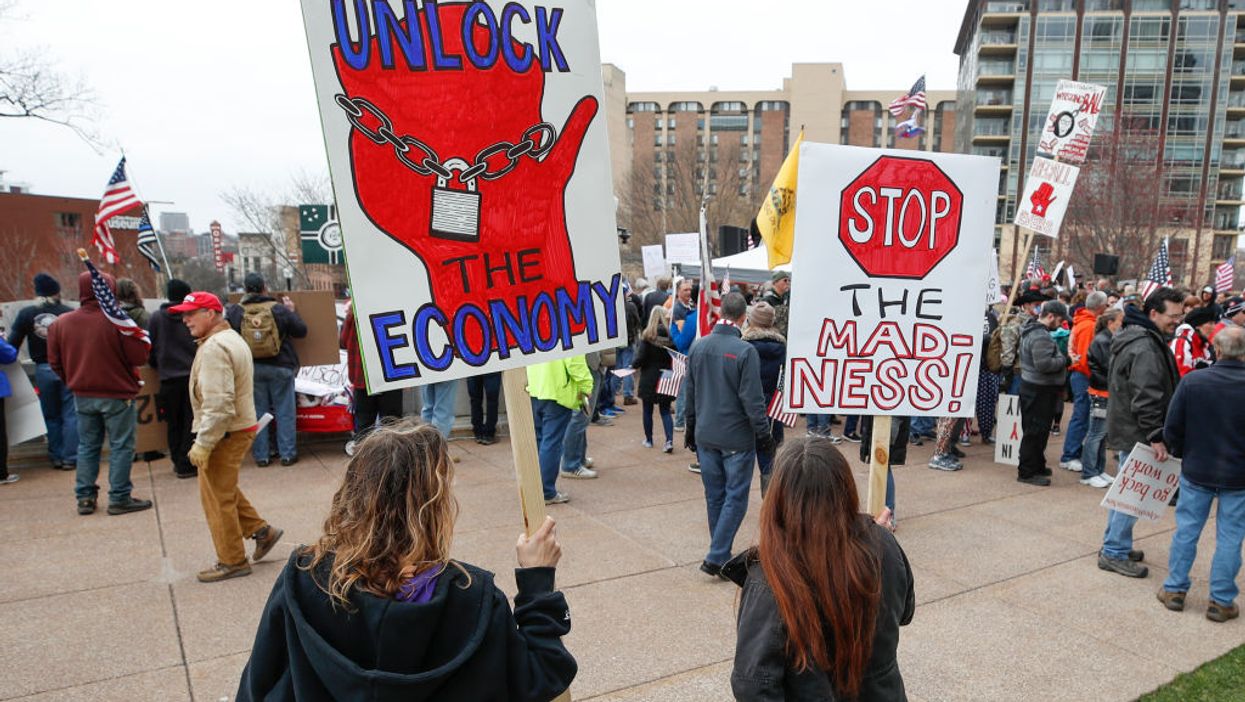
Photo by KAMIL KRZACZYNSKI/AFP via Getty Images

Exceeded authority
In a 4-3 decision released Wednesday night, the Wisconsin Supreme Court struck down an order issued by the state's Department of Health Services that would have extended the state's "stay at home" order through May 26.
The case was filed against DHS Secretary-Designee Andrea Palm, who issued the order on orders from Wisconsin Democratic Gov. Tony Evers. In striking down the order, the court ruled that Palm both violated the law in the specific manner in which the rule was adopted, and also exceeded her statutory authority in the scope of the rule.
The first basis of the court's decision rests on a relatively esoteric question of law regarding whether proper administrative procedures were followed in the course of announcing and implementing the order. The court ultimately concluded that Palm did not follow proper administrative rule-making procedure, and declared,
Palm points to statutes that she asserts give her broad authority to impose regulation; but it does not follow she can impose regulation without going through a process to give the people faith in the justness of the regulation. However, under Palm's theory, she can "implement all emergency measures necessary to control communicable diseases," Wis. Stat. § 252.02(6), even at the expense of fundamental liberties, without rulemaking. That interpretation is constitutionally suspect. We do not construe § 252.02(6) as an "open-ended grant" of police powers to an unconfirmed cabinet secretary.
The court appears to have been especially troubled that the rule ostensibly permitted Palm to impose criminal penalties on Wisconsin residents who violated the rule. The court ultimately concluded that all such criminal penalties must be struck down because the rule was not promulgated lawfully.
Although the issue was not presented to the court, the court also cast doubt on whether Gov. Evers could have promulgated an equivalent rule pursuant to his inherent emergency powers as the executive, noting, "For example, if a forest fire breaks out, there is no time for debate. Action is needed. The Governor could declare an emergency and respond accordingly. But in the case of a pandemic, which lasts month after month, the Governor cannot rely on emergency powers indefinitely."
The court also ruled that, even if Palm's order had been promulgated under proper procedures, it exceeded her department's statutory authority.
Evers harshly criticized the court's ruling, noting that it would severely limit his powers to respond to the coronavirus pandemic. Additionally, a number of Wisconsin county governments, especially for larger cities, promptly issued local "stay at home" orders in response to the court's ruling.